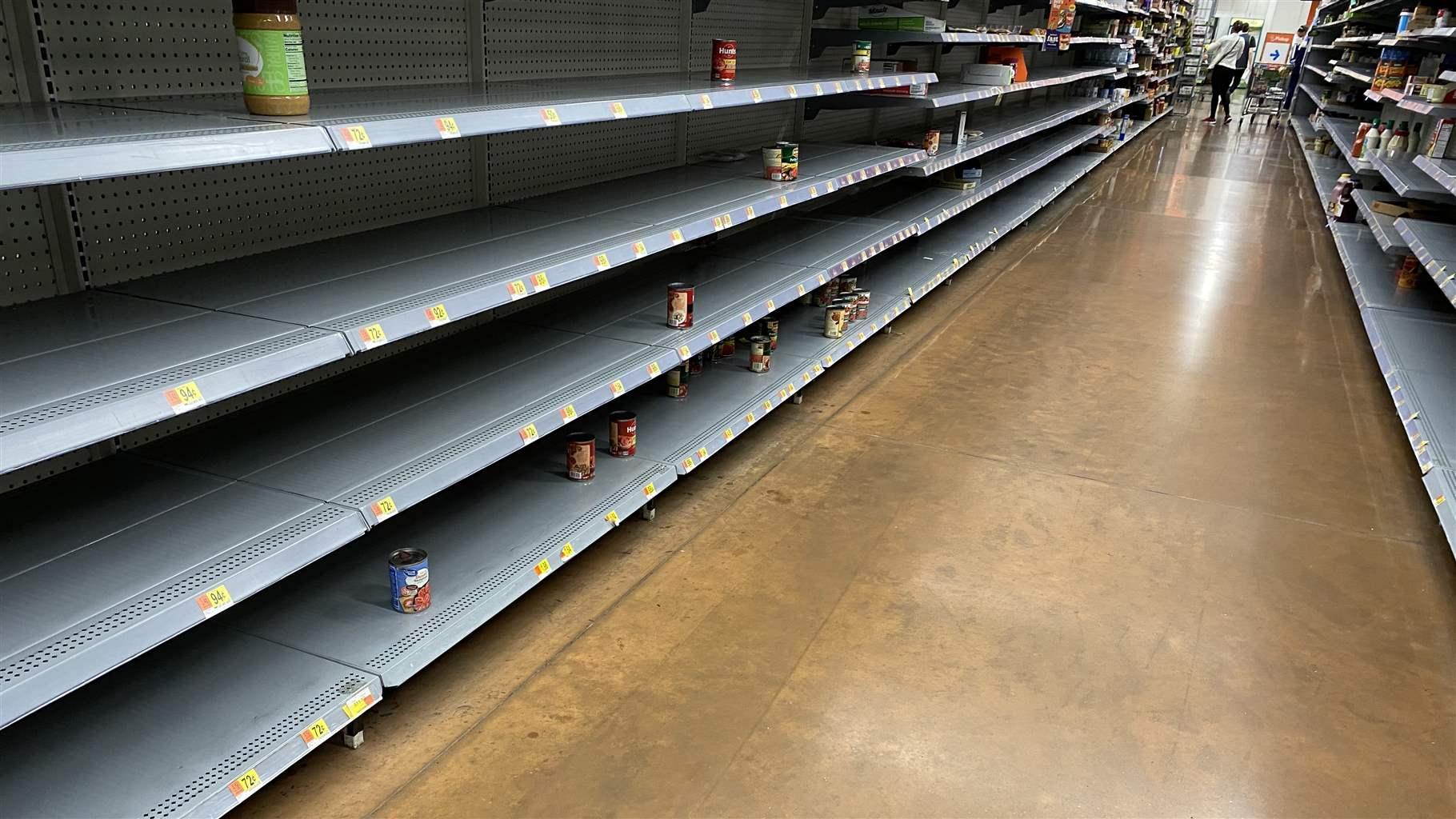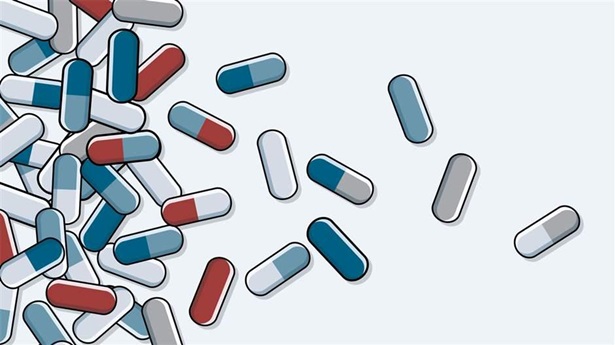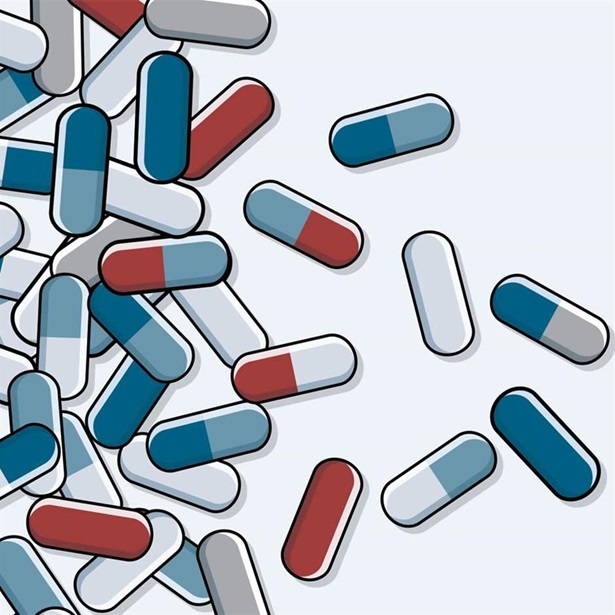How Is the Coronavirus Affecting Food Safety, Oversight, and Supplies?
Recently enacted federal legislation boosts resources to protect public during the pandemic

As the novel coronavirus continues to spread and governments at all levels encourage—or require—people to stay home to limit infections, Americans are stocking up on food to tide themselves over. Is that food safe, and what is being done to keep the food supply stable during the pandemic?
Karin Hoelzer, a veterinarian and microbiologist, leads The Pew Charitable Trusts’ work on antibiotic use in animal agriculture and focuses on policies to mitigate health risks related to the food supply. Before joining Pew, Hoelzer developed and led risk assessments for the U.S. Food and Drug Administration. Her Ph.D. research examined the emergence of viruses and their spread from one species to another. She recently answered questions about the impact of this coronavirus on the safety of the nation’s food supply.
Q. Should Americans be worried about the novel coronavirus in our food?
A. There is no evidence that COVID-19, the disease associated with the coronavirus, is transmitted through food. Infection primarily occurs through direct contact with infected individuals, who shed the virus typically in respiratory droplets when they sneeze, cough, or exhale. Transfer through contaminated environments is possible—for instance if people touch their eyes, nose, or mouth after touching a contaminated surface.
The coronavirus may survive on surfaces for several days, depending on the quantity of virus particles present and environmental conditions such as temperature and humidity. But, unlike bacteria such as Salmonella and E. coli, viruses cannot grow and multiply outside a person’s body. Instead, they decay when exposed to light, heat, and other elements, eventually diminishing to amounts so small that they cannot infect a person.
Q. So what should people do?
A. The standard hygiene and food safety practices are always a good idea and can help protect against the coronavirus. People should:
- Regularly wash their hands using soap and water for 20 seconds, including after handling food packaging or delivery containers.
- Frequently clean and disinfect high-traffic surfaces such as countertops or refrigerator handles.
- Use clean dishes and utensils.
- Cook food thoroughly; heat kills viruses as well as foodborne bacteria that can also make people sick.
- Thoroughly wash fresh produce with water.
Q. What’s being done to ensure the food Americans eat remains safe during the pandemic?
A. Food manufacturing facilities overseen by the Food and Drug Administration or the Department of Agriculture’s Food Safety and Inspection Service (FSIS) must have procedures in place to make sure food is not contaminated by ill workers. These federal rules long predate the coronavirus pandemic. The coronavirus relief legislation recently passed by Congress provided funding to FDA, USDA, and the Centers for Disease Control and Prevention to support additional work during the pandemic, including efforts to ensure the safety of the food supply.
FSIS continues to inspect meat- and poultry-processing facilities, which by law cannot operate without the presence of a federal inspector. Although FDA and state agencies have suspended routine inspections of food manufacturing facilities and farms in the U.S. and abroad, they expect to carry out for-cause inspections, such as those prompted by contamination problems or foodborne outbreaks. In addition, food importers regulated by FDA remain responsible for ensuring that their suppliers adhere to the same food safety standards as businesses in the U.S., but for the time being they must do so using verification methods other than on-site audits.
FDA and FSIS have advised that if an employee of a food business becomes ill with COVID-19, the facility should be deep-cleaned and the business should take other appropriate steps to protect employees who may have had contact with the infected person. However, because COVID-19 is not believed to be foodborne, and because of the safeguards already in place, any food produced by the business would not have to be recalled.
Q. Many have seen empty shelves in their supermarkets. Should Americans be worried about continued access to food?
A. At this point, no. Food businesses, including farms, processing facilities, transportation companies, and supermarkets, are considered essential services and continue to produce and deliver food as the pandemic unfolds. While there have been shortages of some items in supermarkets in recent weeks, those have been caused by increased demand rather than supply disruptions. Food suppliers and retailers have made clear that there are no looming food shortages.
However, there have been instances where workers at farms or processing plants have fallen ill with COVID-19 and some of their colleagues have had to self-quarantine as a result. While this has not affected the country’s food supply, disruptions may occur if large numbers of workers become sick or major facilities in the supply chain have to temporarily cease operations to clean and disinfect. This is another reason why practicing social distancing in an effort to “flatten the curve,” or reduce the spread of the disease, is essential.
Karin Hoelzer, a veterinarian, supports The Pew Charitable Trusts’ safe food project and leads Pew’s work on antibiotic use in animal agriculture.











